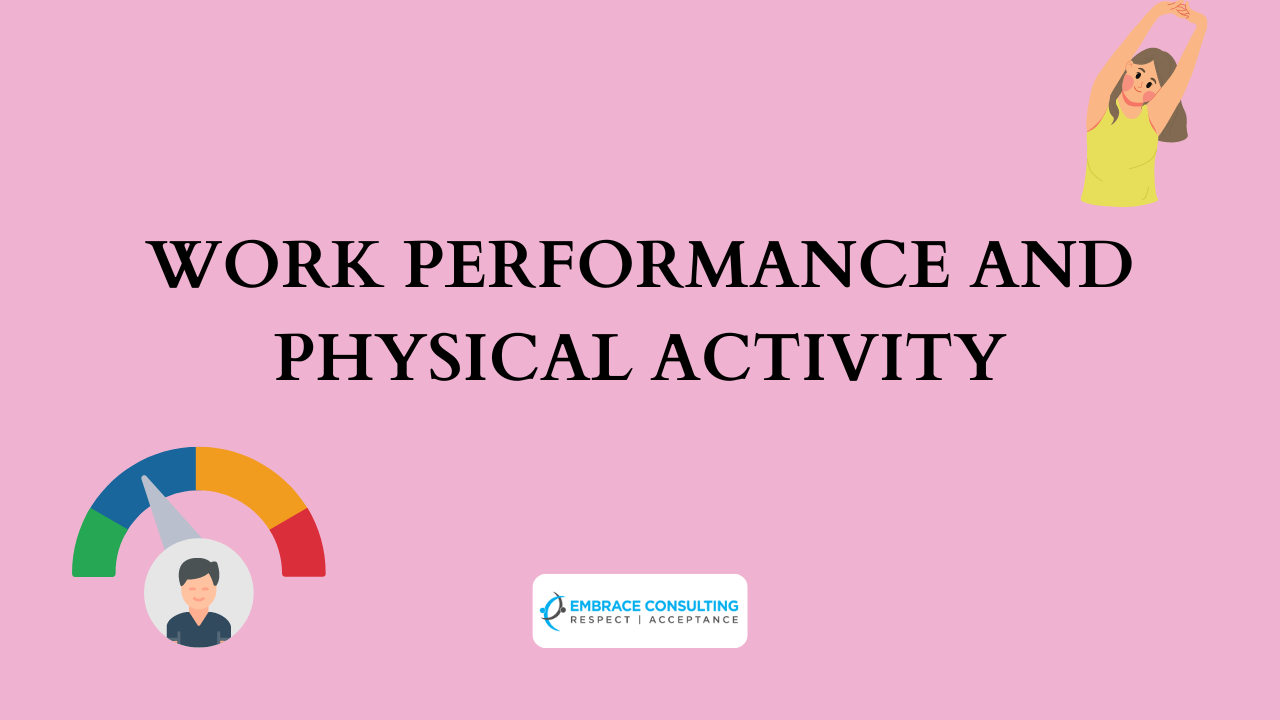When you consider how being physically active impacts work performance, you will see that there are many benefits to health that boost productivity at work. Given that we spend the majority of our waking hours at work, the current studies suggest that physical activity has some significant workplace implications.
Some noteworthy findings about daily physical activity that impact employees and organizations: Motivation for physical activity predicts physical activity. People`s autonomous motivation, a stable individual difference reflecting the degree to which one feels self-determined to engage in a behavior, is a critical personal resource that can prompt individuals to engage in physical activity. Importantly, the more autonomous the form of motivation — in other words, the more people consider physical activity to be a fun and enjoyable activity rather than something to dread — the more likely they are to engage in daily physical activity.
There are several advantages to physical activity that affect how well people perform at work. Some of these advantages are as follows:
A. Physical activity produces next-day work-relevant resources.
Daily physical activity generated a package of next-day resources, called “resource caravans,” that contributed to work-related outcomes. The first resource immediately afforded by physical activity is quality sleep or a person`s degree of satisfaction with their daily sleep experience.
B. Physical activity improves next-day job performance and health.
This has further contributed to inconsistent findings, as employees may perceive a depletion of resources (such as vigor and concentration) immediately after physical activity, which may actually interfere with their work. Research finds time-lagged benefits of physical activity on next-day task performance, creativity, and health symptoms.
C. Job self-efficacy shapes the capacity to gain resources from physical activity.
Job self-efficacy, which reflects an employee`s perception of their capacity to perform their job, amplifies the resource-generating benefits of daily physical activity on sleep quality and task focus. People with higher levels of self-efficacy tend to hold stronger positive beliefs in their motivation and ability to acquire work-related resources from daily physical activity.
D. Major Benefits of high-intensity physical activity each week.
Research identifies moderate-intensity physical activity as most impactful for generating physical, affective, and cognitive resource gains that further benefit next-day task performance, creativity, and health outcomes. Given that low-intensity physical activity may require longer engagement to reap resource gains, and high-intensity physical activity may lend itself more easily to injury, moderate-intensity exercise is a more feasible goal for many.
Finally, it was found that even short periods of physical activity, even 20 minutes each day, were sufficient to generate resources that contributed to employees` next-day task performance and health. Research reveals that even employees who dislike exercising can reap benefits from daily physical activity.
Source:






